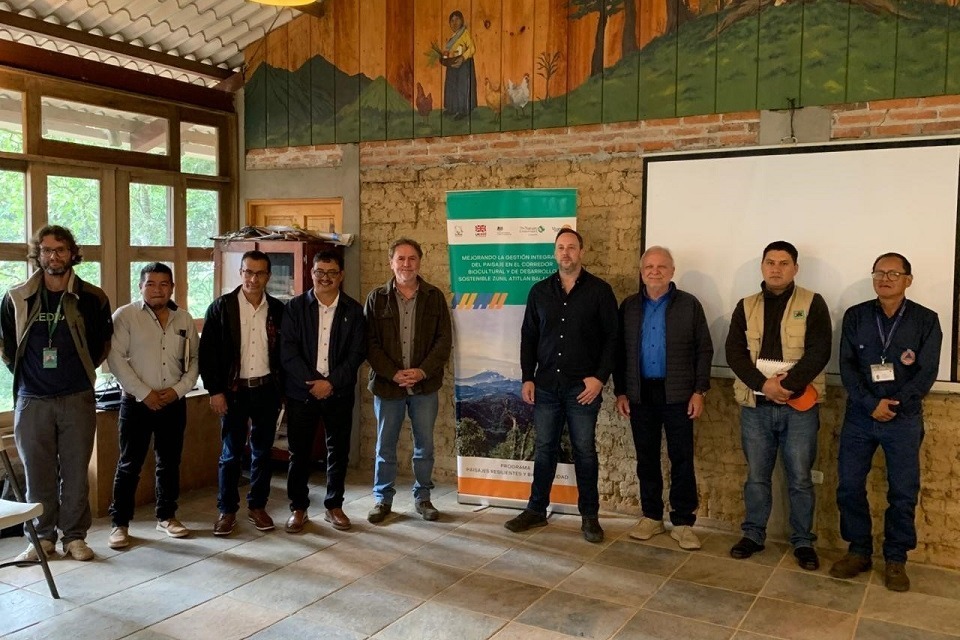Residents in Quetzaltenango, Sololá, and Chimaltenango are implementing a project that improves their capacities for inclusive governance and the sustainable use of biodiversity in the so-called Zunil-Atitlán-Balam Juyu´ biocultural and sustainable development corridor.
The UK Government, through the Darwin Initiative, and with the support of The Nature Conservancy (TNC) Guatemala, is supporting this initiative, which seeks to improve integrated landscape management to reduce poverty and social inequality in rural indigenous communities. The investment amounts to more than Q4.5 million and is being implemented between June 2023 and March 2026.
Representatives of the Vivamos Mejor Association, the project’s implementing partner in Sololá, explained to Deputy Chief Huggins that during the second year of activities, their efforts have focused on planning measures to benefit conservation areas, establishing new protected zones, and coordinating integrated fire management efforts.
They highlighted that, thanks to the project, the Integrated Fire Management Strategy (EIMF) was developed in conjunction with the National Forest Institute (INAB), the National Council of Protected Areas (CONAP), and the National Coordinator for Disaster Reduction (CONRED).
Another important component in this phase of the project is the updating of four management plans for the Municipal Regional Parks located in the Lake Atitlán Basin Multiple Use Reserve (RUMCLA) in Sololá. Some had not been revised in more than ten years. The update was conducted with the participation of municipalities and local stakeholders and includes geographic, social, economic, and environmental information.
The project continues to provide tools to strengthen indigenous cooperatives by providing improved livelihoods for rural poverty reduction through best practices in shade-grown coffee cultivation, beekeeping, and sustainable forest management for local industries.
These activities have also been carried out in coordination with government and municipal authorities and conservation area managers in Sololá, Quiché, and Chimaltenango.
Paul Huggins, Deputy Chief of Mission, said
We recognize the challenges that remain, such as the effects of climate change, forest fires, and the need to open sustainable markets for local products. But we also see opportunities to continue building capacity, sharing good practices, and scaling up these efforts. The UK will remain a steadfast partner in biodiversity protection, climate action, and sustainable development in Guatemala.
Juan Carlos Godoy, Director of TNC Guatemala, said
All these efforts to strengthen inclusive participation and governance of natural resources by its inhabitants will enable sustainable management over time to protect remaining forests, restore the area’s biological connectivity, and improve the local economy through the conservation and sustainable use of biodiversity.
Eduardo Secaira, General Director of Asociación Vivamos Mejor Guatemala, said
At Vivamos Mejor, we firmly believe that conservation must go hand in hand with the well-being of communities. This project demonstrates that it is possible to strengthen governance and conserve biodiversity when working together and with respect for ancestral knowledge.

